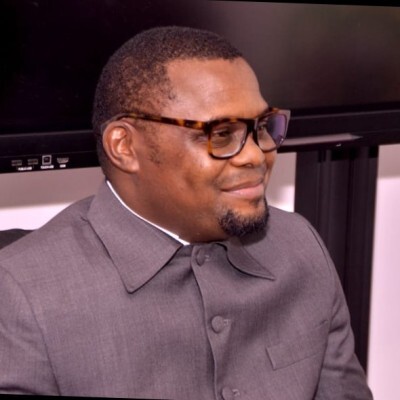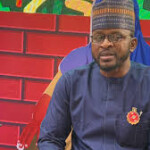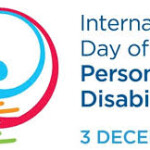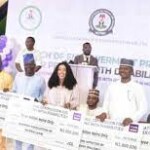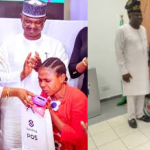ER: Your dominant thematic areas are inclusion and ending of poverty cycles. How far has CBM Global gone in achieving these in Nigeria, considering the nations peculiar environment? CBM Global works alongside people with disabilities and their representative organizations to advance disability rights to end the cycle of poverty and disability. We have been doing this through our programmes and initiatives focused on Community-based Inclusive Development, Community Mental Health, Inclusive Eye Health and Neglected Tropical Diseases, Disaster Risk Management, Inclusive Education, and Inclusive Livelihoods. In 2023, at least 2,213,543 people were directly reached through advocacy and awareness raising activities, capacity building (training), and healthcare services (neglected tropical diseases, eye health, mental health, maternal and newborn child health, including fistula) across our thematic areas in 14 states including the FCT where we have footprints. Out of this number, 36,073 were people with disabilities.
ER: Nigeria claims it has over 35 million PWDs. There is no database to authenticate this—or any of the disaggregated datasets for disability types. How do you plan your programmes for, say, persons with visual impairment in Nigeria?
As mentioned earlier, CBM Global works alongside people with disabilities and their representative organizations to advance disability rights. The disability movement is at the centre of what we do as an organization and where we work. To ensure that all our programmes and projects are inclusive of people with disabilities, we meaningfully engage Organizations of Persons with Disabilities (OPD) to co-create those projects/programmes so that their perspectives are reflected in the design of those projects/programmes so that their needs are provided for and so that they can be addressed during the implementation of the projects/programmes. For an eye health programme, we work with OPDs that are most affected by eye health issues such as the National Association of the Blind and the Networks of People with Albinism.
ER: Apart from its interventions, CBM Global must have been involved in policy advocacy to achieve wider goals. Please share with us instances of your efforts to influence policies in Nigeria.
CBM Global has been meaningfully collaborating with the Federal Ministry of Health in shaping policy direction over the last 20 years to strengthen health systems and improve access to services across mental health, neglected tropical diseases, and eye health. In 2010, CBM supported the establishment of the Mental Health Action Committee at the Federal Ministry of Health, which stimulated actions for coordinated advocacy and provision of technical guidance for mental health services in Nigeria. These efforts led to the approval of the first mental health policy for Nigeria (called National Policy for Mental Health Services Delivery) by the Honourable Minister at the National Council on Health in 2013. More recently, CBM Global supported our partners to actively engage the Mental Health Bill process through campaigns and legislative engagements leading up to the passage of the Bill in 2022. CBM Global has been involved in the recent Mental Health policy reviews and the development of the National Strategic Framework for Suicide Prevention, and the development of the Implementation Roadmap for the Mental Health Act. We are currently a member of the National Mental Health Technical Working Group and the National Task Force for Suicide Prevention. Also, we are a member of the Ministerial Steering Committee on inclusive health, advising the Honourable Coordinating Minister for Health and Social Welfare.
ER: More than 50 percent of Nigerians are poor. They can’t pay out of pocket for a specialist health service like eye care. And the most affordable Nigeria’s version of UHC policy (or even the National Health Act) offers this population segment is primary health care. What do you think is the way out?
I would suggest that the government establish such services at the community level using the primary eye care approach and an effective community-based health insurance be set up and operationalized. Also, working with marginalized groups to design and implement eye health projects focusing on resilience building, for example, improving access to context-fit livelihoods options.
ER: In your advocacy to end disability so far, can you share with us your major successes in ending sight loss in particular?
CBM has been successful in getting the Federal Ministry of Health to develop National Child Eye Care plan and standard operational procedures, and they have taken the lead in recommending that states domesticate those plans.
ER: Illiteracy is rampant in the region where sight loss is most prevalent in Nigeria. Likewise patronage of unsafe eye health practices and products. Regulation that could have helped has failed, too. What has been the nature of your advocacy in such circumstances, and how successful has it been in saving sights?
CBM Global through our partners and stakeholder engagements is promoting the establishment of eye health action teams/committees in the states that we work. These teams are comprised of traditional and religious leaders, people with disabilities and vision problems, health workers, and teachers. This is helping to drive processes for eye health systems strengthening through adoption and domestication of eye health plans for those states.
ER: This year’s World Sight Day is focusing on children’s eye health. The Disability Act 2018 and the Child Act provide free health care services for children. Their implementation, though, has never covered eye health services. Advocacy has its limits in solving a nation’s problems. But Nigerians will like to know CBM Global’s plans and interventions in this area.
CBM Global currently supports a four-year comprehensive and inclusive eye health project in Kano and Jigawa States focusing on access to and treatment of child and adult cataract and glaucoma surgeries, including retinoblastoma and provision of spectacles. There is also a livelihoods component in the project. These services are provided free of charge to the teeming population in the states that require such services. We will continue to support our partners in scaling up such comprehensive and inclusive eye health projects in line with our (CBM Global) Inclusive Eye Health Strategy and in alignment with national priorities.

